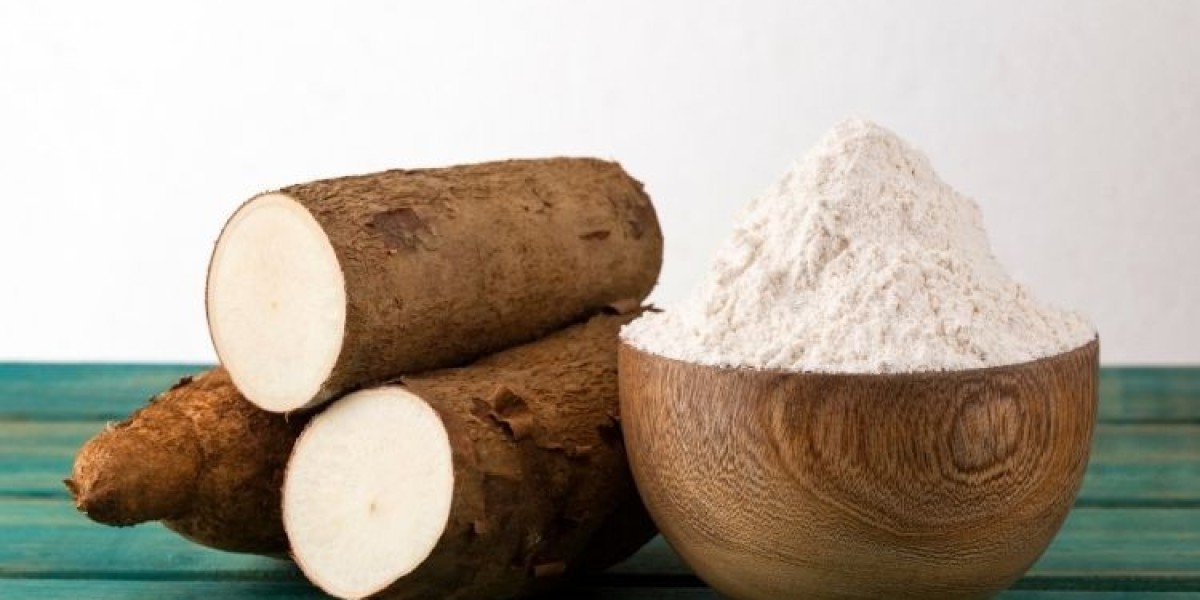Cassava starch, often referred to as tapioca starch, is one of nature’s most remarkable and multifunctional ingredients. Derived from the roots of the cassava plant — a resilient crop cultivated across tropical regions — this fine, white powder is much more than just a kitchen staple. It is a powerful agent that transforms everything from food textures to industrial processes. With its neutral taste, gluten-free properties, and impressive binding abilities, cassava starch has found a permanent place in homes, laboratories, factories, and health-conscious lifestyles alike.
In an age where natural and clean-label ingredients are gaining momentum, cassava starch stands out as a plant-based, eco-friendly, and efficient choice. It bridges the gap between tradition and modern innovation, offering endless utility while staying true to its sustainable roots.
Expert Market Research Insight: Cassava Starch's Rising Global Appeal
According to Expert Market Research, cassava starch is witnessing expanding global applications, particularly in regions where sustainability, affordability, and versatility are key considerations. As industries shift toward bio-based raw materials, cassava starch is becoming increasingly valuable in sectors like food processing, pharmaceuticals, textiles, and even biodegradable packaging. Its wide functionality — from thickening sauces to forming biodegradable films — makes it a preferred substitute for synthetic additives. The research highlights that cassava starch’s adaptability and cost-effectiveness are driving its use not only in traditional markets but also in emerging fields where innovation meets environmental responsibility.
More Than a Thickener: The Magic in the Powder
In culinary use, cassava starch has long been cherished for its ability to create glossy sauces, crispy coatings, and chewy textures. Unlike other starches, it performs beautifully under both high and low temperatures. That’s why it’s a favorite in gluten-free baking and Asian cooking, where it adds bounce to noodles and elasticity to dumpling skins. It doesn’t alter the flavor of the final dish and has excellent freeze-thaw stability, making it ideal for ready-to-eat meals and frozen products.
But food is just the beginning. Cassava starch also plays a critical role in pharmaceutical tablets, where it acts as a binder and disintegrant, ensuring medications hold their form and dissolve properly. In the textile industry, it's used in fabric sizing to increase yarn strength during weaving. Even in adhesives and paper production, cassava starch offers natural stickiness and film-forming properties that outperform synthetic alternatives.
Eco-Friendly, Plant-Powered, and Human-Safe
One of the strongest appeals of cassava starch is its biodegradability and non-toxic nature. Unlike petroleum-based polymers or heavily processed thickeners, cassava starch is gentle on the environment and the body. This makes it a perfect candidate for sustainable product innovation — think compostable plastic substitutes, eco-packaging, or organic hygiene products.
It’s also completely plant-based and allergen-free, which aligns perfectly with the rising demand for vegan, allergen-conscious, and clean-label consumer goods. In personal care, it’s being used as a natural ingredient in dry shampoos, facial powders, and even body scrubs, thanks to its smooth texture and moisture-absorbing qualities.
The Traditional Meets the Technological
In many cultures, cassava starch is not new — it's been used for generations in traditional cooking and household remedies. What’s changed is how it’s now embraced by modern science and industries for cutting-edge solutions. Research is currently exploring how cassava starch can serve as a biodegradable film in food packaging or as a base for organic fertilizers and bioplastics.
In farming, cassava itself is a drought-tolerant crop that thrives in poor soils, making it an environmentally sustainable choice for starch production. Unlike other high-input crops, cassava requires fewer resources and delivers a high yield — making it a friend of both the planet and the farmer.
Cassava Starch in Everyday Life: Hidden in Plain Sight
Even if you haven’t consciously bought cassava starch before, chances are you’ve encountered it — in your instant soup, your pill bottle, your favorite lipstick, or the paper straw in your smoothie. Its presence is subtle but powerful, showing up in ways that often go unnoticed but make a big difference in how things function, feel, and last.
From thickening your gravy to holding together your vitamin tablet, cassava starch is a silent hero in your daily routine. Its ability to integrate into both modern lifestyles and traditional practices makes it one of the most valuable and adaptable natural ingredients available today.
Cassava Starch — Rooted in Purpose, Growing in Possibility
Cassava starch is more than a commodity — it’s a symbol of how something simple and natural can become essential across countless industries and cultures. Its functionality, sustainability, and human-safe qualities make it a go-to solution for manufacturers, home cooks, and innovators alike.
As the world leans toward greener, cleaner, and smarter solutions, cassava starch offers the rare balance of being gentle yet powerful, ancient yet future-ready. Whether you're stirring it into a recipe or building a biodegradable product line, cassava starch reminds us that sometimes the most profound innovations grow quietly beneath the surface.







